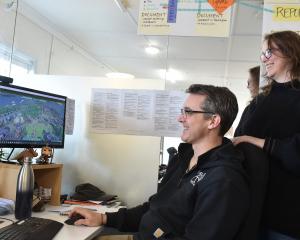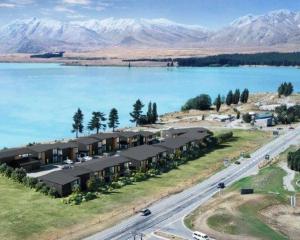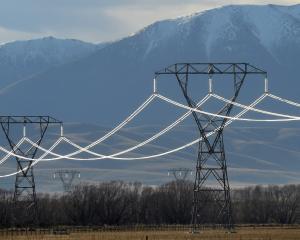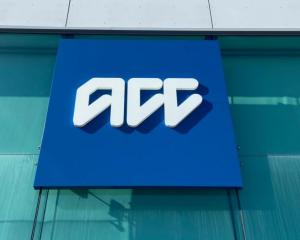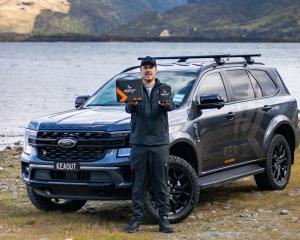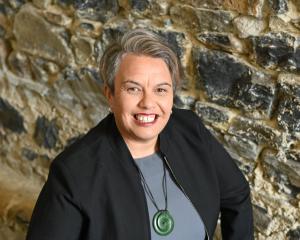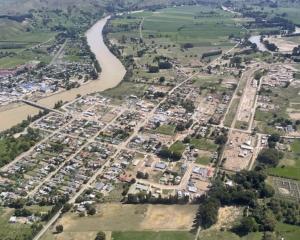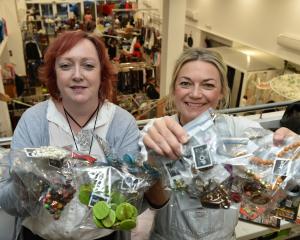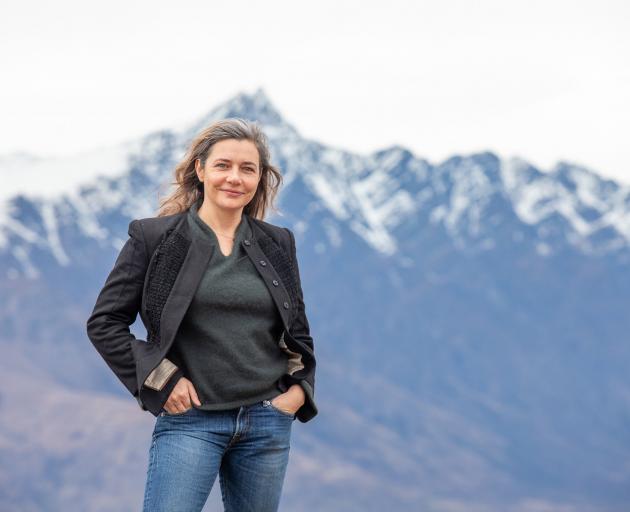
Queenstown, London, Sweden, Arrowtown.
It has been a case of coming full circle for Jacqui Macalister, who has returned to her roots in her latest role.
Ms Macalister has joined Compass Agribusiness, working in its Arrowtown office as general manager, sustainability, where she brings to her role two decades’ experience in corporate sustainability and food value chains.
She has returned to New Zealand from Sweden, where she was global head of health and sustainability at Ikea Food, part of international furniture giant Ikea.
Prior to that, she was part of the European team leading McDonald’s global shift to sustainability.
Originally from Queenstown, Ms Macalister said she was "absolutely thrilled" to be working with the firm.
She thought it would be difficult to get a job back in New Zealand and that she would have to live in one of the main centres, so it had all worked out "incredibly well".
After boarding at St Hilda’s Collegiate School in Dunedin, Ms Macalister studied law and commerce at the University of Otago.
She recalled her first interaction with environmental issues in year 12 when a Greenpeace representative spoke at school about climate change. That was in the early 1990s and she recalled an over-riding feeling of shock and awe.
After graduating, she worked in banking in London but was not passionate about what she was doing, she said.
She started looking at the extraction industries, such as oil and mining companies, and was fascinated by the work they were doing on a licence to operate, including building schools and hospitals, and looking at their environmental impact.
She remembered thinking that surely every business needed a social licence and had to think about how it interfaced with society.
Ms Macalister left banking and volunteered for about six months in London "pouring tea and coffee" for chief executives.
She was introduced to Business in the Community, a charity created by Prince Charles nearly 40 years ago to champion responsible business, and ended up running its corporate responsibility index.
From there, she was hired by McDonald’s — a move she says was, in many ways, about being "in the right place at the right time".
It was the mid-2000s and sustainability was "starting to take off". London was quite a leader in that field.
It was also quite a pivotal time for McDonald’s, which had come out of a turbulent decade.
In 2006, a group of people dressed as large chickens entered McDonald’s restaurants around the UK, as part of a Greenpeace campaign against the fast-food chain’s use of soya — from the Amazon — in chicken feed.
That was a "wake-up moment" for McDonald’s, which had not really calculated that it was taking place, and it wanted to know "what else was out there".
She led the company’s European supply chain sustainability work and co-developed its global sustainable sourcing strategy.
Her decision to go to McDonald’s was based on the idea that she was keen to go where the biggest impact was being had.
McDonald’s was probably the biggest customer for beef globally and the sheer size and scale of the business fascinated her, she said.
After nearly eight years, she joined Ikea Food, part of Swedish furniture giant Ikea and a business that had its own issues, having been swept up in Europe’s horse meat scandal.
For many years, what was a sizeable food business had largely been a "sleeping giant" and it was not really recognised as having such huge potential for the business.
Ms Macalister was brought in to help bring together a strategy and team for the global food business to start putting more substance behind the Ikea brand.
Like McDonald’s, it was an equally fascinating time. The goal was to bring together healthy sustainability and she was responsible for sustainability in the supply chain and also looking at nutrition in the products and trying to marry them together.
She spent about three and a-half years living in Sweden before returning to New Zealand and establishing her own consultancy.
Ms Macalister is also finishing a master’s degree in sustainability leadership at Cambridge University, which focuses on food system partnerships.
"Pretty much, life has been 24/7 sustainability," she said.
On her return, Compass managing director Guy Blundell suggested she do some work for the firm.
She later jumped at the opportunity to take on the sustainability role due to several reasons.
It was always important to work with good people and she was certain of that at Compass. The company was also in the "perfect position" to move into sustainability.
For many years, it had focused on the commercial and agricultural aspects of farming businesses and it understood the fundamentals of farming.
She was excited about both the opportunity to bring sustainability into that type of business and the chance to work with New Zealand’s agriculture industry.
"We see plenty of momentum and great examples around us already, but we have to be ahead of environmental pressures and a rapidly changing market and customer landscape."
By advancing its sustainability practices, New Zealand had an opportunity to capitalise on its natural landscapes, biodiversity assets and international reputation for efficient production, she said.
"We hope to help drive conversation and activity around sustainable farming and food systems, underpinned by a financially healthy and resilient sector — the two shouldn’t be considered mutually exclusive."
She believed the future for the agriculture sector was "incredibly positive".
There was a lot of misunderstanding concerning the impact of agriculture and there had been some "demonising" of farmers.
But nobody knew or understood natural resource management better than the country’s farmers, she said.

